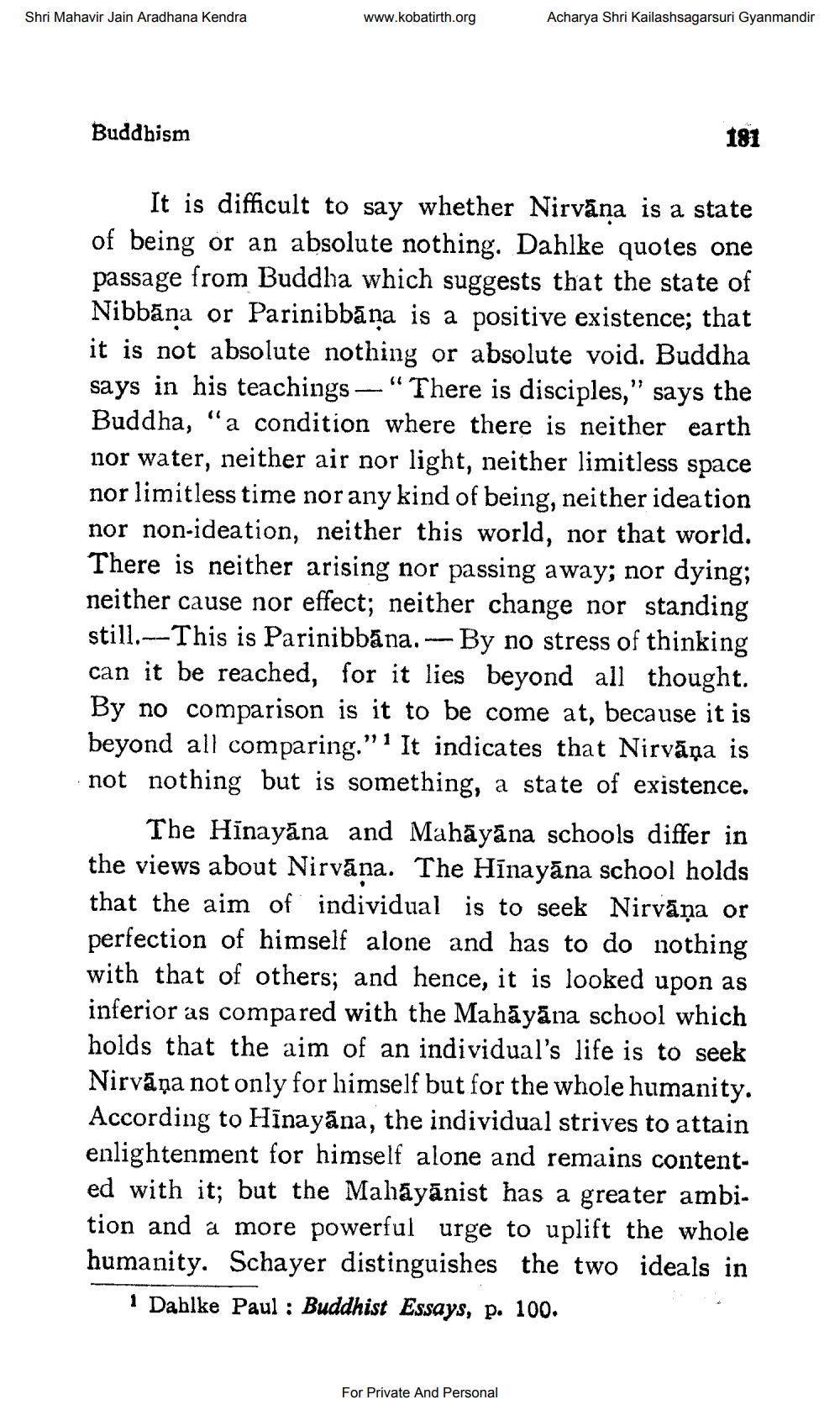________________
Shri Mahavir Jain Aradhana Kendra
www.kobatirth.org
Acharya Shri Kailashsagarsuri Gyanmandir
Buddhism
181
It is difficult to say whether Nirvana is a state of being or an absolute nothing. Dahlke quotes one passage from Buddha which suggests that the state of Nibbāna or Parinibbāna is a positive existence; that it is not absolute nothing or absolute void. Buddha says in his teachings — “There is disciples," says the Buddha, “a condition where there is neither earth nor water, neither air nor light, neither limitless space nor limitless time nor any kind of being, neither ideation nor non-ideation, neither this world, nor that world. There is neither arising nor passing away; nor dying; neither cause nor effect; neither change nor standing still.---This is Parinibbāna. -- By no stress of thinking can it be reached, for it lies beyond all thought. By no comparison is it to be come at, because it is beyond all comparing." 1 It indicates that Nirvāṇa is not nothing but is something, a state of existence.
The Hīnayāna and Mahāyāna schools differ in the views about Nirvana. The Hinayāna school holds that the aim of individual is to seek Nirvāņa or perfection of himself alone and has to do nothing with that of others; and hence, it is looked upon as inferior as compared with the Mahāyāna school which holds that the aim of an individual's life is to seek Nirvāņa not only for himself but for the whole humanity. According to Hinayāna, the individual strives to attain enlightenment for himself alone and remains contented with it; but the Mahāyānist has a greater ambition and a more powerful urge to uplift the whole humanity. Schayer distinguishes the two ideals in
1 Dahlke Paul : Buddhist Essays, p. 100.
For Private And Personal




